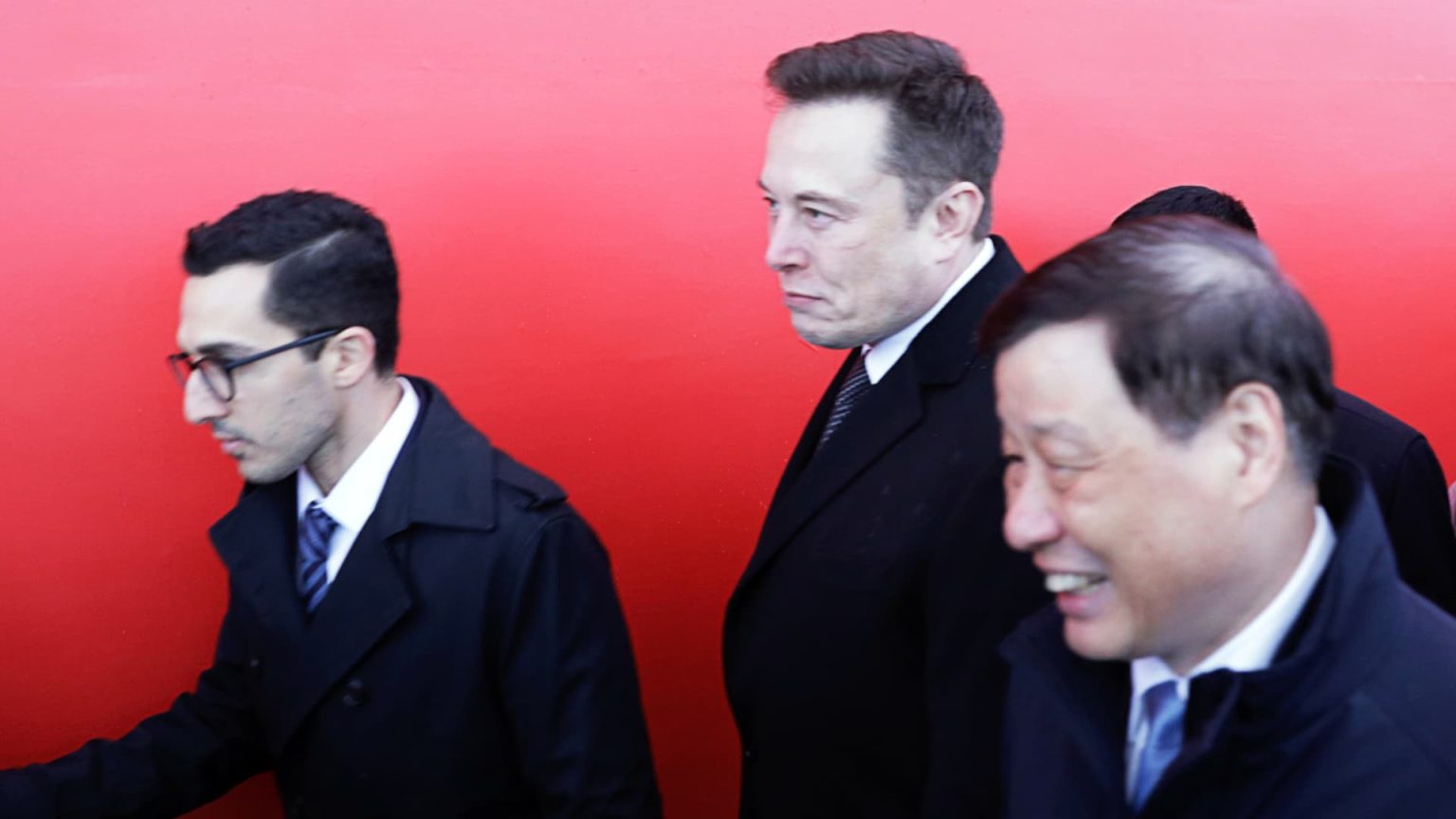Tesla, under the leadership of CEO Elon Musk, has made significant changes in its upper management amid declining vehicle sales in major markets. The company has confirmed the termination of Omead Afshar, Vice President of Manufacturing and Operations, in what appears to be a response to internal and external pressures on the automaker’s performance. As Tesla faces notable challenges, including intensified competition and reputational concerns, the departure of Afshar signals potential shifts in strategy as the automaker aims to regain its footing in the rapidly evolving electric vehicle market.
| Article Subheadings |
|---|
| 1) Overview of Recent Management Changes at Tesla |
| 2) Impact of Afshar’s Termination on Tesla’s Operations |
| 3) Market Performance: Tesla’s Declining Sales |
| 4) Tesla’s Reputational Struggles |
| 5) Future Outlook: What Lies Ahead for Tesla? |
Overview of Recent Management Changes at Tesla
The recent termination of Omead Afshar from his post as Vice President of Manufacturing and Operations marks a significant shake-up within Tesla’s leadership structure. Afshar had been a key figure at Tesla, directly reporting to Elon Musk and overseeing a team responsible for critical manufacturing operations. This effort appears to be part of a broader strategy to navigate the company through challenging times. Officials confirmed that the decision came after significant declines in vehicle sales in major markets.
Internal organizational charts showed that Afshar supervised more than half a dozen top executives, including notable figures such as Troy Jones and Joe Ward, who held key roles in sales across North America and Europe, respectively. The changes in management structure may indicate a tightening of operations as Tesla seeks to streamline its processes amid tough competition, particularly from Chinese electric vehicle manufacturers.
Impact of Afshar’s Termination on Tesla’s Operations
The firing of Omead Afshar raises questions about the immediate effects on Tesla’s manufacturing and operational efficiency. Reports indicate that Afshar was previously the subject of an internal investigation concerning his procurement methods for hard-to-source materials, which might have cast a shadow over his leadership. While details surrounding the investigation remain unclear, it likely impacted the decision to let him go.
Following the internal investigation, Afshar briefly worked for SpaceX, Musk’s aerospace and defense company, before returning to Tesla and assuming a more prominent role. His departure, in conjunction with that of Milan Kovac, who headed Tesla’s humanoid robotics program, signifies a potential restructuring of strategic roles at the company. Such changes could lead to a re-evaluation of operational strategies aimed at improving manufacturing and product delivery timelines.
Market Performance: Tesla’s Declining Sales
Tesla’s stock has seen a significant downturn, dropping 19% this year, a performance that starkly contrasts with other megacap tech stocks. Declines in new car sales in Europe for five consecutive months indicate persistent challenges for the company. Analysts attribute this downward trend, in part, to the growing popularity of more competitively priced electric vehicles from Chinese manufacturers.
Reports from the European Automobile Manufacturers Association (ACEA) noted that customers are gravitating towards these alternatives, suggesting that Tesla’s higher price points may be limiting its market share. Given this backdrop of declining sales and marginal market presence, Tesla may need to rethink its pricing and marketing strategies to regain customer interest and increase sales volume.
Tesla’s Reputational Struggles
The automotive giant has faced reputational damage over the past year, connected to Musk’s controversial public statements and political affiliations. Notably, Musk’s active support for controversial political figures and initiatives has led to criticism and concern over the brand’s image, potentially dissuading some consumers from purchasing Tesla vehicles.
With Musk having spent approximately $300 million to influence the re-election of former U.S. President Donald Trump, alongside publicly endorsing Germany’s far-right AfD party, these actions may have left an adverse impression on the company’s core customer base, particularly in regions where political sentiments are divided. Efforts to rehabilitate the brand’s image could prove essential as Tesla looks to expand its consumer demographic.
Future Outlook: What Lies Ahead for Tesla?
Looking forward, Tesla faces a critical juncture. The management shake-ups and diminishing sales necessitate a robust strategic rethink. Analysts are watching to see how the company’s new leadership will respond to intensifying external competition and changing market dynamics. There is speculation that more leadership changes might follow, aimed at stabilizing performance and restoring investor confidence.
Achieving sustainable growth in a saturated market will require innovation, customer-focused strategies, and perhaps reevaluation of Tesla’s pricing models. Musk’s storied vision and influence remain potent but must be balanced with a thorough understanding of consumer behavior and market trends to re-establish Tesla as a leader in the electric vehicle space.
| No. | Key Points |
|---|---|
| 1 | Elon Musk has terminated Omead Afshar, Tesla’s VP of Manufacturing. |
| 2 | Declining car sales in critical markets are attributed to the decision. |
| 3 | Internal investigations into Afshar’s actions may have influenced his termination. |
| 4 | Tesla’s stock price has dropped 19% this year, reflecting broader market challenges. |
| 5 | Musk’s controversial political activity has adversely impacted Tesla’s brand image. |
Summary
The changes at Tesla underscore the urgency of addressing declining sales and a shifting competitive landscape. With the termination of Omead Afshar, the company is signaling a commitment to reevaluating its operational strategies. As Tesla navigates its future, the intersection of leadership, market trends, and public perception will be crucial for its success in reclaiming its stronghold in the electric vehicle market.
Frequently Asked Questions
Question: Why was Omead Afshar terminated?
Omead Afshar was terminated due to declining vehicle sales in major markets and the potential impact of an internal investigation regarding his procurement practices.
Question: What challenges is Tesla currently facing?
Tesla is facing declining sales, increased competition, and reputational damage due to controversial public statements made by CEO Elon Musk.
Question: How has Tesla’s stock performed recently?
Tesla’s stock has dropped 19% this year, significantly underperforming compared to other megacap technology stocks.


